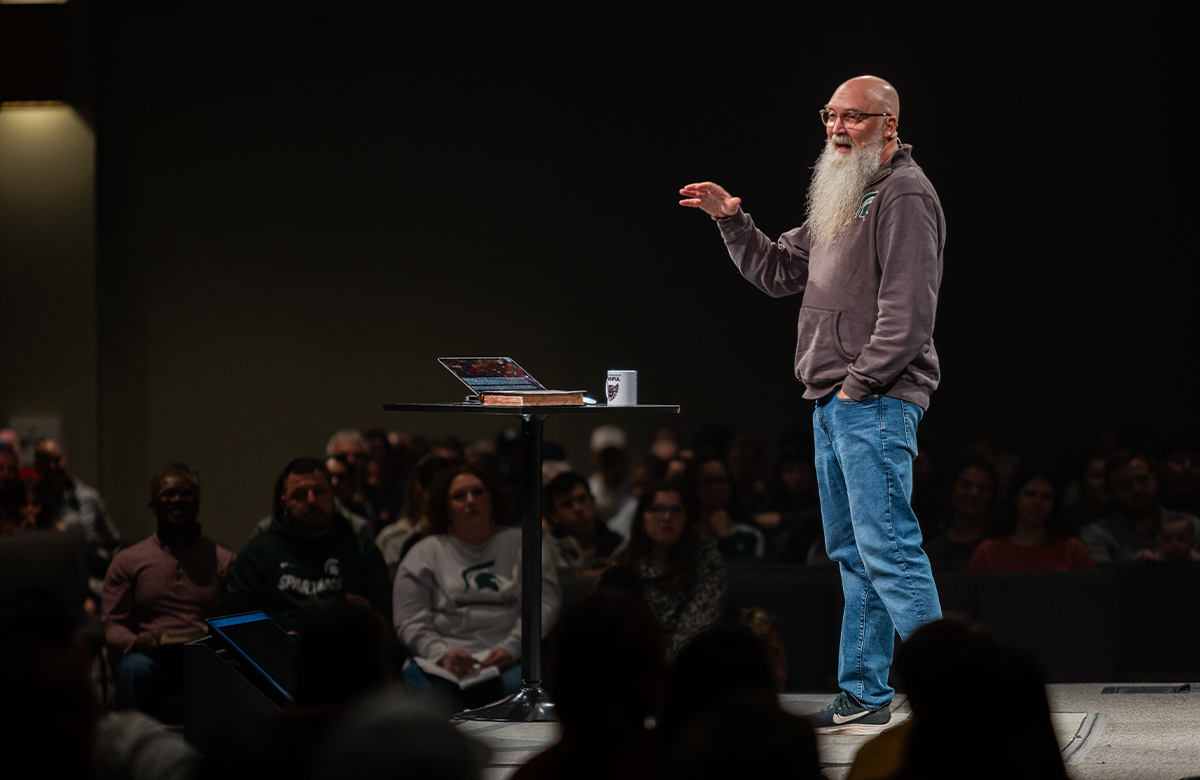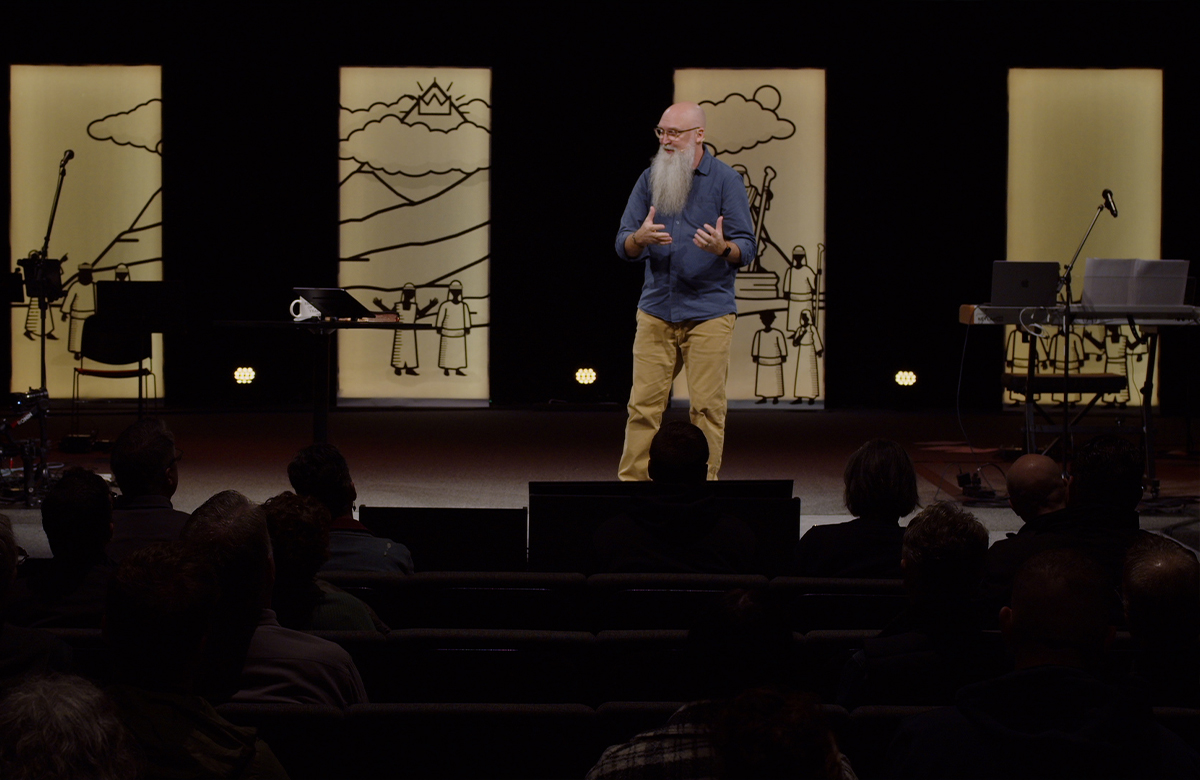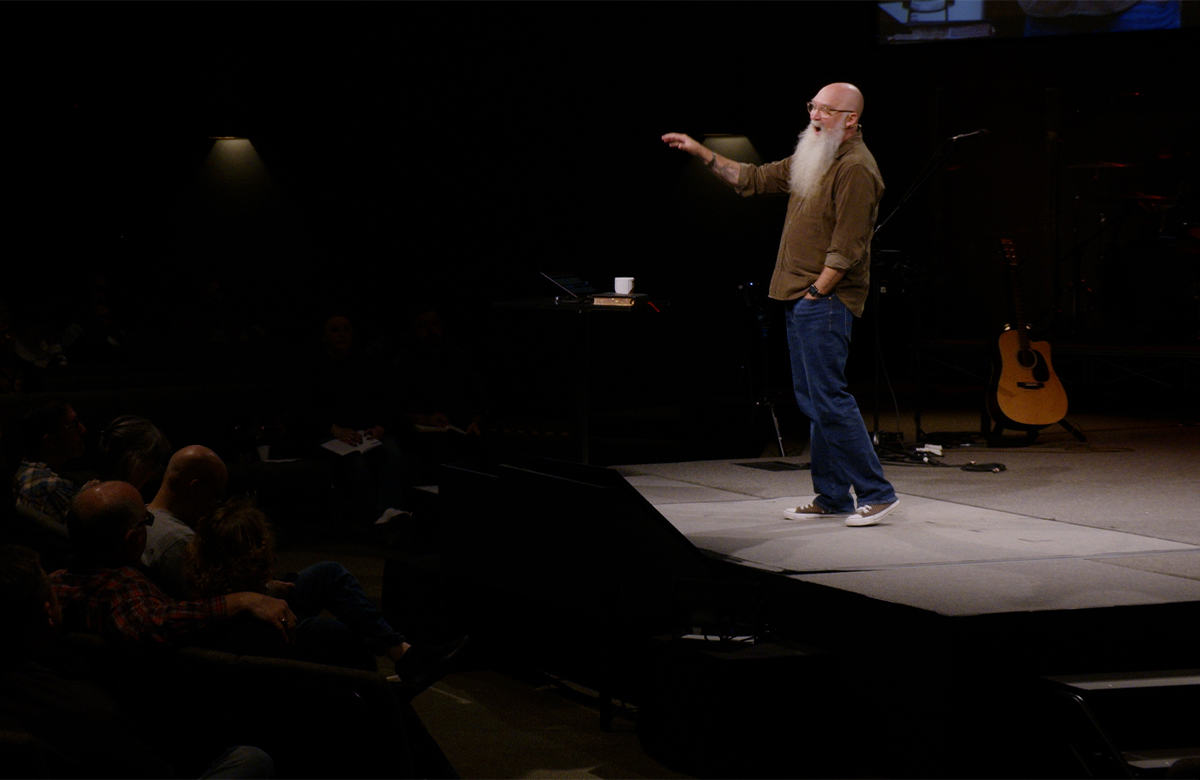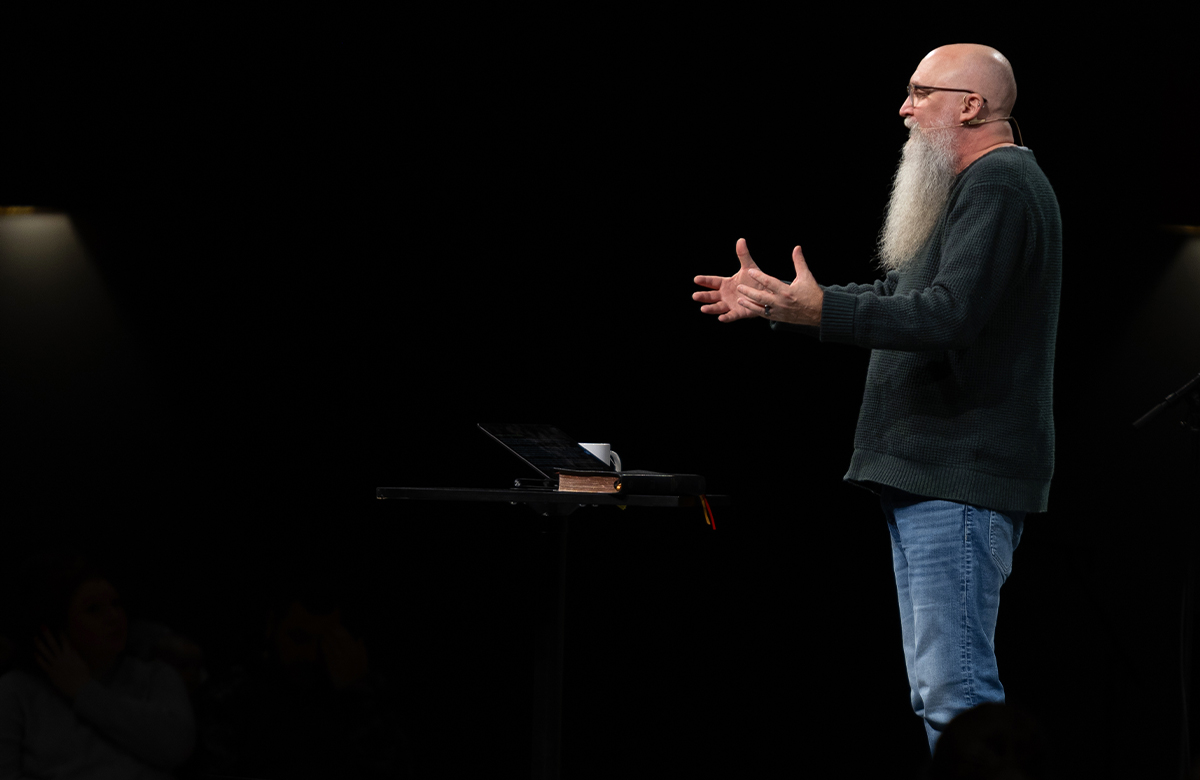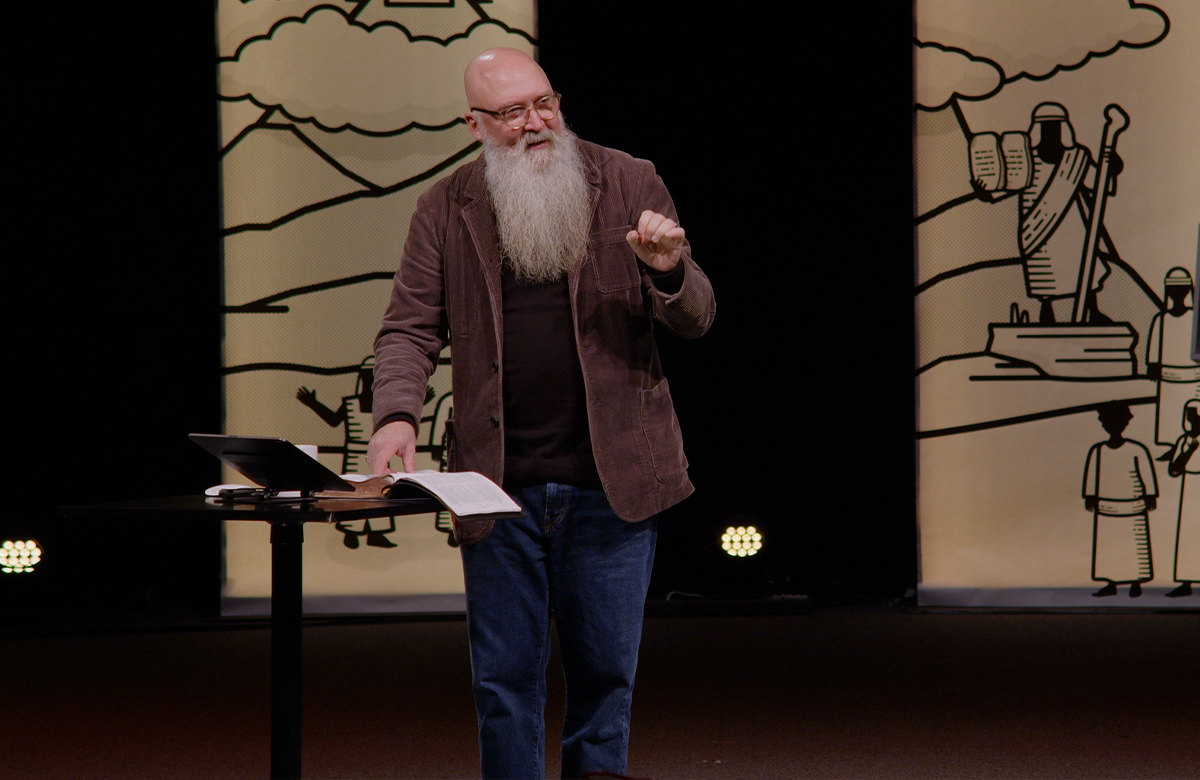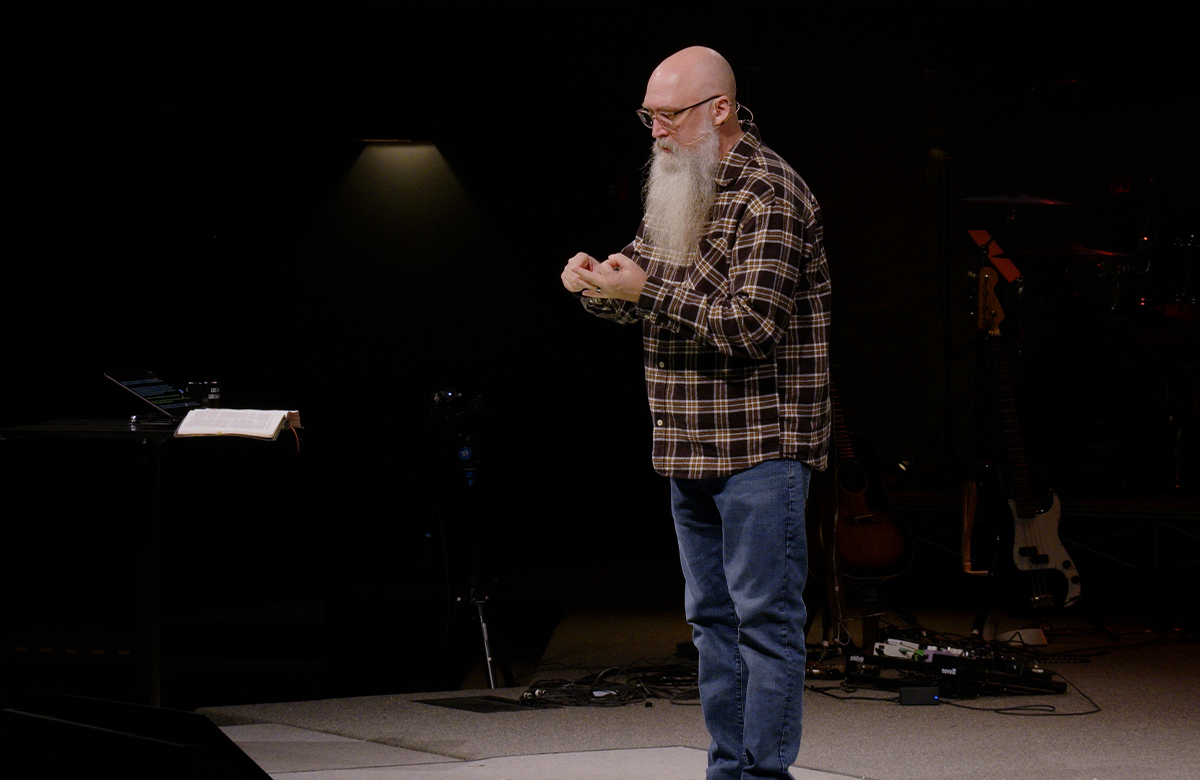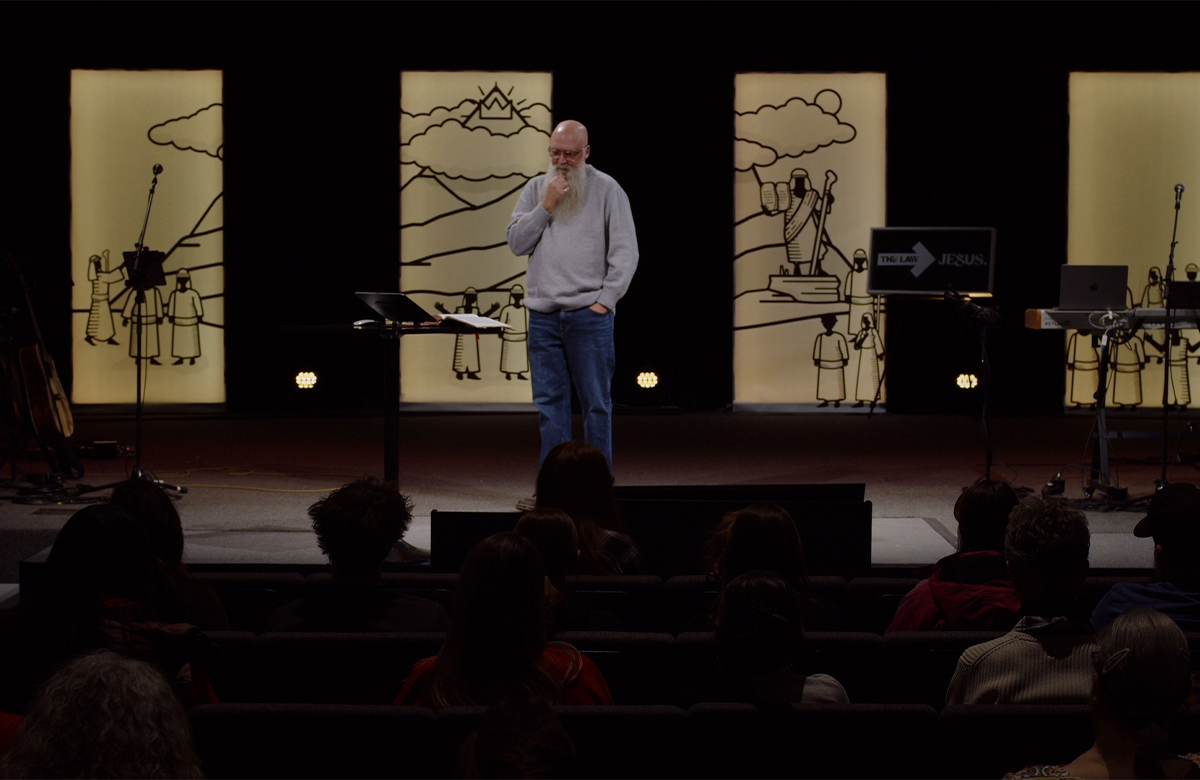12.01.13 | Genesis
Abimelech
Noel Heikkinen
Pastor Noel Heikkinen teaches the next message in the Genesis series.
- Live Notes
Genesis 19:30-21:24 (Use this link to take notes in your Faithlife Study Bible)
Now Lot went up out of Zoar and lived in the hills with his two daughters, for he was afraid to live in Zoar. So he lived in a cave with his two daughters. And the firstborn said to the younger, “Our father is old, and there is not a man on earth to come in to us after the manner of all the earth. Come, let us make our father drink wine, and we will lie with him, that we may preserve offspring from our father.” So they made their father drink wine that night. And the firstborn went in and lay with her father. He did not know when she lay down or when she arose.
The next day, the firstborn said to the younger, “Behold, I lay last night with my father. Let us make him drink wine tonight also. Then you go in and lie with him, that we may preserve offspring from our father.” So they made their father drink wine that night also. And the younger arose and lay with him, and he did not know when she lay down or when she arose. Thus both the daughters of Lot became pregnant by their father. The firstborn bore a son and called his name Moab. He is the father of the Moabites to this day. The younger also bore a son and called his name Ben-ammi. He is the father of the Ammonites to this day. (Genesis 19:30–38)
From there Abraham journeyed toward the territory of the Negeb and lived between Kadesh and Shur; and he sojourned in Gerar. And Abraham said of Sarah his wife, “She is my sister.” And Abimelech king of Gerar sent and took Sarah. (Genesis 20:1–2)
But God came to Abimelech in a dream by night and said to him, “Behold, you are a dead man because of the woman whom you have taken, for she is a man’s wife.” Now Abimelech had not approached her. So he said, “Lord, will you kill an innocent people? Did he not himself say to me, ‘She is my sister’? And she herself said, ‘He is my brother.’ In the integrity of my heart and the innocence of my hands I have done this.” (Genesis 20:3–5)
God cares greatly about marriage as he has defined it: one man, one woman, one lifetime.
Then God said to him in the dream, “Yes, I know that you have done this in the integrity of your heart, and it was I who kept you from sinning against me. Therefore I did not let you touch her. (Genesis 20:6)
Now then, return the man’s wife, for he is a prophet, so that he will pray for you, and you shall live. But if you do not return her, know that you shall surely die, you and all who are yours.” (Genesis 20:7)
So Abimelech rose early in the morning and called all his servants and told them all these things. And the men were very much afraid. Then Abimelech called Abraham and said to him, “What have you done to us? And how have I sinned against you, that you have brought on me and my kingdom a great sin? You have done to me things that ought not to be done.” (Genesis 20:8–9)
Abimelech (the pagan king) rebukes Abraham (God’s chosen man) for his deplorable behavior, knowing full well he is a prophet of God.
And Abimelech said to Abraham, “What did you see, that you did this thing?” (Genesis 20:10)
Abraham said, “I did it because I thought, ‘There is no fear of God at all in this place, and they will kill me because of my wife.’ (Genesis 20:11)
Then Abraham prayed to God, and God healed Abimelech, and also healed his wife and female slaves so that they bore children. For the Lord had closed all the wombs of the house of Abimelech because of Sarah, Abraham’s wife. (Genesis 20:17–18)
The Lord visited Sarah as he had said, and the Lord did to Sarah as he had promised. And Sarah conceived and bore Abraham a son in his old age at the time of which God had spoken to him. Abraham called the name of his son who was born to him, whom Sarah bore him, Isaac. And Abraham circumcised his son Isaac when he was eight days old, as God had commanded him. Abraham was a hundred years old when his son Isaac was born to him. And Sarah said, “God has made laughter for me; everyone who hears will laugh over me.” And she said, “Who would have said to Abraham that Sarah would nurse children? Yet I have borne him a son in his old age.” (Genesis 21:1–7)
And the child grew and was weaned. And Abraham made a great feast on the day that Isaac was weaned. But Sarah saw the son of Hagar the Egyptian, whom she had borne to Abraham, laughing. (Genesis 21:8–9)
So she said to Abraham, “Cast out this slave woman with her son, for the son of this slave woman shall not be heir with my son Isaac.” And the thing was very displeasing to Abraham on account of his son. (Genesis 21:10–11)
But God said to Abraham, “Be not displeased because of the boy and because of your slave woman. Whatever Sarah says to you, do as she tells you, for through Isaac shall your offspring be named. And I will make a nation of the son of the slave woman also, because he is your offspring.” (Genesis 21:12–13)
At that time Abimelech and Phicol the commander of his army said to Abraham, “God is with you in all that you do. Now therefore swear to me here by God that you will not deal falsely with me or with my descendants or with my posterity, but as I have dealt kindly with you, so you will deal with me and with the land where you have sojourned.” And Abraham said, “I will swear.” (Genesis 21:22–24)
God is always at work. Sometimes, we can see what he is doing and sometimes we can’t. From Abraham and Sarah’s story, we can learn that:
1. There are earthly consequences for our actions
What then shall we say was gained by Abraham, our forefather according to the flesh? For if Abraham was justified by works, he has something to boast about, but not before God. For what does the Scripture say? “Abraham believed God, and it was counted to him as righteousness.” Now to the one who works, his wages are not counted as a gift but as his due. And to the one who does not work but believes in him who justifies the ungodly, his faith is counted as righteousness. (Romans 4:1–5)
What shall we say then? Are we to continue in sin that grace may abound? By no means! How can we who died to sin still live in it? (Romans 6:1–2)
Let not sin therefore reign in your mortal body, to make you obey its passions. Do not present your members to sin as instruments for unrighteousness, but present yourselves to God as those who have been brought from death to life, and your members to God as instruments for righteousness. For sin will have no dominion over you, since you are not under law but under grace. (Romans 6:12–14)
2. Our actions are not victimless
3. The world is watching
- More From This Series
- More From This Speaker



































